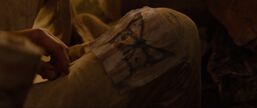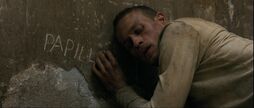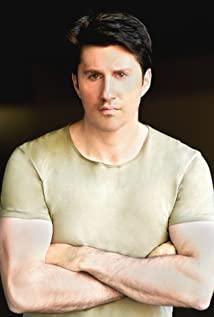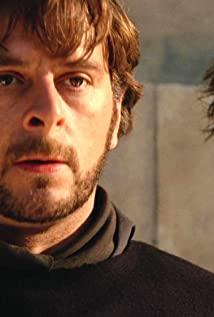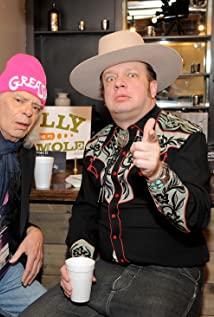『
Dong Leshan was born on November 14, 1924 in Ningbo, Zhejiang.
Dong Leshan wrote drama reviews for some newspapers and magazines, and later used the pseudonyms of Meyer and Stewart for nearly three years from 1942 to 1944 to be the only large-scale comprehensive literary and art publication in Shanghai at that time, "Magazine" every month. Write a drama review column.
In 1956, Xinhua News Agency established the translation department, and Dong Leshan, the "official", was the business secretary and was in charge of daily business work. He is not interested in being an official, but he is most concerned about his business level. He was told that his business level was the equivalent of an associate professor at the university at the time. He was thirty-two years old this year. During this period, in addition to personally participating in the translation and finalization of important news articles, he also wrote a "News Translation Handbook" of tens of thousands of words, which laid a good foundation for helping and training college graduates who have just started working. . Moreover, he also made important contributions to the standardization of Chinese translation of foreign words in China, and now they have become some commonly used words in Chinese, such as "missile", "Muslim", "supermarket", "deterrence", "containment", etc. It's all made by him himself. When choosing the inscription for the masthead of "Reference News", he chose Lu Xun's handwriting after repeated consideration. First, because he admired Lu Xun's character since he was a child, but because of frequent political movements, he worried that the handwriting of other living celebrities would never last. . His choice, after decades of ups and downs, has been used to this day.
At the beginning of the anti-rightist movement, Dong Leshan was labeled as a rightist because he refused to admit "unnecessary" charges or framed others. He was detained for the longest time until the school was moved to the "May 7th" cadre school. Even during dry school labor, he secretly taught English translation to students who were interested in learning. In 1971, he fell off the tractor due to fatigue and broke his left arm while carrying heavy loads, and was finally allowed to return to Beijing for bone repair.
Dong Leshan invested the greatest effort in his later years. Starting from "The Red Star Over China", he mainly translated and introduced "Nineteen Eighty-Four", "Orwell's Anthology", "Darkness at Noon", "Western" for the Chinese people. A series of important literary and academic works, such as Humanist Tradition, The Trial of Socrates, and Classics, have all contributed to Chinese people's understanding of what socialism is, what is humanistic spirit, and what is from the perspective of world, culture and history. Important help.
Dong Leshan had no habit of collecting books except for reference books all his life. Most of the books in his family were sent by friends and publishers. However, in his later years, he lived a secluded life and once went to the city center to buy a novel for himself that was not a famous novel. The book describes the experiences of two inmates held in an island prison in French Guiana, and was once made into a Hollywood movie starring two well-known movie stars, Steve McQueen and Dustin Hoffman. The protagonist, played by Steve McQueen, escaped from prison several times despite all kinds of difficulties and dangers in the story, was captured several times, and was sentenced to a dark single cell. At the end of the story, the protagonist released from the single cell is already a gray-haired, slow-moving old man, but once again he bid farewell to his friend who was already content with raising chickens and vegetables, and was going to spend the rest of his life in prison, jumped off the cliff, Ride a floating raft made by yourself and float to the endless sea. Dong Leshan's life, does it not reflect this kind of spirit of not being afraid of hardships and perseverance!
』
Excerpted from "The Collected Works of Dong Leshan"
In January 1999, Dong Leshan passed away in Beijing, and he told his son to take the ashes out of China. Today, he is lying quietly in a cemetery in California, USA, enjoying the sun.
PS:
When I reread the last sentence I typed, I found that it was largely misleading. I'm sorry if it caused trouble, it wasn't my original intention. Let me explain a little bit: I personally understand that Dong Leshan and Papillon's experiences are very similar, but I do not imply that Papillon's departure from Prison Island is equivalent to Mr. Dong's departure from China. Regaining freedom means spiritually; when Dong Leshan was in his later years, China had been reforming and opening up for many years. If he wanted to leave, I think Mr. Dong could have chosen to go abroad or immigrate. Then, China owed Dong Leshan and his generation. There are many people, which have caused irreparable damage to his body and spirit. He can make any decision, and I respect it very much. Moreover, Dong Leshan only said (and did not find any other information) that the ashes would not be left in China, and he did not mention that they must be buried. In the United States, it has nothing to do with the United States or not, but only with China.
View more about Papillon reviews



